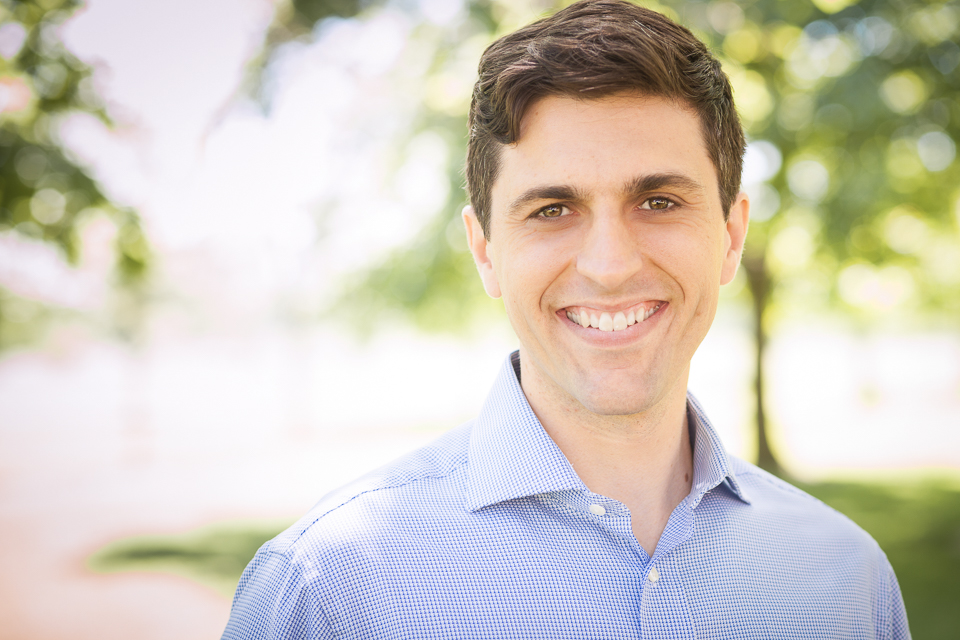Six Doctoral Candidates Receive Dissertation Year Fellowship
April 19, 2018
Helen Wong | Graduate School of Arts and Sciences
The Graduate School of Arts and Sciences has awarded the 2018 Dissertation Year Fellowship to six doctoral candidates in Politics, History, Music, and English. The award provides a $33,500 stipend, a $4,000 research grant and a full credit toward the Brandeis Health Insurance option for students writing dissertations in the humanities or humanistic social sciences.
The Dissertation Year Fellowship is supported by a $700,000 award from the Andrew W. Mellon Foundation, whose mission is to "strengthen, promote, and, where necessary, defend the contributions of the humanities and the arts to human flourishing and to the well-being of diverse and democratic societies." They support "exemplary institutions of higher education and culture as they renew and provide access to an invaluable heritage of ambitious, path-breaking work."
"Some of our most promising PhD candidates have received this award over the past seven years," said Eric Chasalow, Dean of the Graduate School of Arts and Sciences. "The freedom from other academic obligations and the financial security that this program provides, thanks to the generosity of the Mellon Foundation, are of paramount importance to our scholars. The program makes a real difference in allowing them to complete their dissertations in a timely manner and produce work that demonstrates their full capabilities."
Read more about the 2018 Dissertation Year Fellows below:

Revolution in the Working Class: Community, Conflict, and Identity in Nizhnii Novgorod, 1917-1941
“Between 1926 and 1941 the Soviet Union mobilized all available resources to accelerate industrial growth, but its campaign entailed an array of economic, social, and cultural consequences—many of which were neither intended nor expected. My dissertation examines how that process unfolded at Krasnoe Sormovo “Red Sormovo,” a factory in the historic Sormovo district of Nizhnii Novgorod. I examine what methods the Soviet state used to promote the new Soviet worker, explain why the state adopted and adapted these methods, and chart how workers responded to the increasingly invasive policies from above. I show how workers stubbornly resisted and cunningly exploited state directives, making them serve their own, not the regime’s, interests, and demonstrate how working-class resistance compelled the state to change its goals, strategies, and methods as it attempted to transform the workforce.”

Unreasonable Blackness: Black Women Writing Madness, 1967 – 2015
“Whether in the form of mental illness, as in the case of Sandra Bland, a woman who was pulled over for a traffic violation and purportedly committed suicide in her jail cell, or fury as in the case of Marissa Alexander, who, in spite of claiming a ‘Stand Your Ground’ defense, was sentenced to a twenty-year prison sentence for firing a warning shot out of anger, “madness" mobilizes racism and sexism to produce different life, and death, outcomes for black women. Within these meanings and deployments of madness, my dissertation explores how and why black women writers such as Toni Morrison, Octavia Butler, Alice Walker, Toni Cade Bambara, Ntozake Shange, Gayle Jones, and Gloria Naylor emerged beginning in the post Black Power/ Civil Rights era to resignify the trope of the mad black woman in order to articulate possible black futures.”

The Politics of Subjectivity: Biopolitics and British Romanticism
“My dissertation explores the political stakes of subjectivity in the works of major British Romantic writers, such as William Wordsworth, William Blake, Mary Shelley, and James Hogg. As these writers reflect on the meaning of individuality, agency, and selfhood, I argue, the Romantics are observing and critiquing what modern theorists call biopolitics, a paradigm of politics that serves to debase humans to their biological functions. If criticisms on the politics of Romanticism have tended to fixate on the express political allegiances of Romantic writers, by contrast, my project delineates the political program shared by the Romantics with a diverse spectrum of political ideologies—namely, a critique of the dehumanization inherent in biopolitics. Tracing Romanticism’s critical engagement with the contemporary imperative to biologize the human self, the dissertation attempts to offer a fresh way of understanding the relationship between politics and aesthetics in Romantic-era Britain.”

The Art of Transformation: The Dialogue Between Thomas Adès’s Tevot and Jean Sibelius’s Seventh Symphony as a Critical Lens for the Symphonic Tradition (paper) and Gloom, Glimmer, Glow, Glisten, Gleam (piece)
“For the paper, I’m writing about Thomas Adès’s seventh orchestral work, Tevot (2007). Although Asyla (1997) is arguably Thomas Adès’s most famous composition, Tevot has also had a distinguished history and is arguably the more ambitious work, being composed in a single, twenty-minute long span for a larger orchestra with more tightly integrated ideas. Tevot is not only a work that Adès has explicitly called a symphony, but also one that has a plausible precedent in the symphonic literature: Sibelius’s Seventh Symphony (1924). Although one cannot say Tevot was modeled on Sibelius’s Seventh Symphony, the preponderance of connections between the works demonstrates that their relationship is neither trivial nor incidental. This pairing, along with its contrast with Adès’s earlier Asyla, has sufficient salience not only to show how Adès builds on the symphonic tradition both from others’ work and his own, but also to investigate why Tevot is so compelling both logically and emotionally.
Meanwhile, at a time when darkness, barbarism, and ignorance seem ascendant, I’ve been thinking a lot about light lately: what it does and means both literally and metaphorically. Drawing inspiration from the 25 English “gl-” words about light, I am writing a 20-30 minute work playable by a 14-player sinfonietta that uses the “gl-” words and their further associations as musical metaphors to reflect on these larger ideas. The piece will comprise roughly a dozen sections that will respond to the “gl-” words individually or in combination, encompassing passages both violent and serene, fleeting and direct.”
The Human Crisis Revisited: The Legacy of 20th Century Totalitarianism
“My dissertation explores the ways in which totalitarianism still lingers in contemporary politics, as well as how 20th century responses to totalitarianism inadvertently introduced pathologies that help explain an increasingly ominous political horizon in the 21st. I focus on three political theorists, each representing a different line of anti-totalitarian thought: Karl Popper, who lays out the liberal, technocratic response; Hannah Arendt, who provides a neo-republican response, and Albert Camus, who gives us an absurdist, existentialist response. I engage with and critique these responses in turn, and show that each implies that a kind of communal political responsibility lies at the heart of combating what remains of totalitarianism. This conclusion seriously conflicts with the lesson that liberal democracy appears to have taken from its encounter with totalitarianism—i.e., that communal responsibility and grand political projects should be avoided.”
Arctic Artery: An Environmental History of the Trans-Alaska Pipeline System
“The Trans-Alaska Pipeline System (TAPS) was the most expensive private capital construction project of the 20th Century and remains the most iconic and consequential pipeline system in American history. My dissertation grapples with the pipeline system's enduring legacy of power and pollution. From offshore oil wells in the Arctic Ocean, to the fierce debate over drilling in the Arctic National Wildlife Refuge (ANWR) and the devastating Exxon Valdez spill, the pipeline system created an integrated oil economy with profound ecological and human effects. I argue that scholars need to analyze the expansive geographic, political, and environmental influence of energy infrastructures like pipelines to appreciate the totality of their construction and endurance. As the world strives to decarbonize the global economy and citizens wrestle with controversial projects like the Keystone XL, Dakota Access, and Trans-Mountain Pipelines, the still-operating Trans-Alaska Pipeline System offers a timely historical study.”





